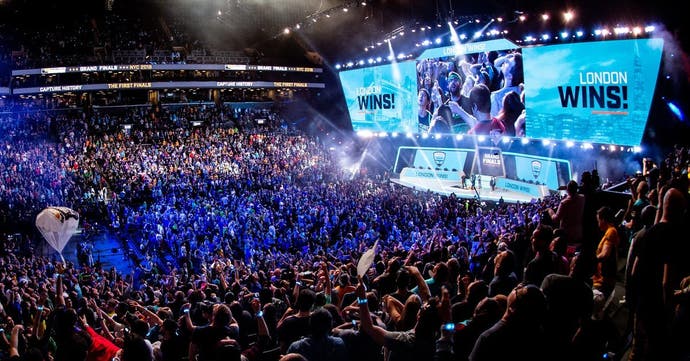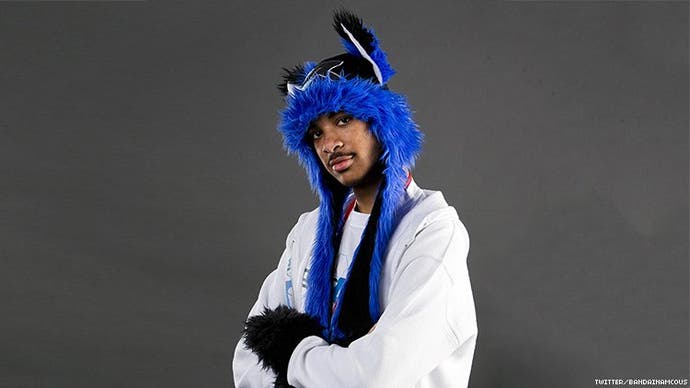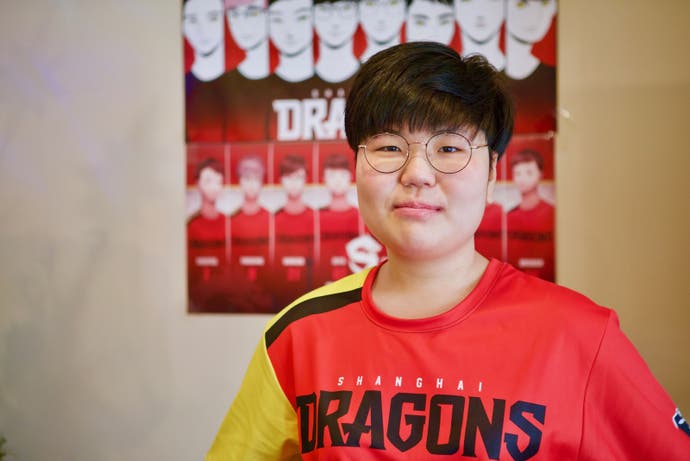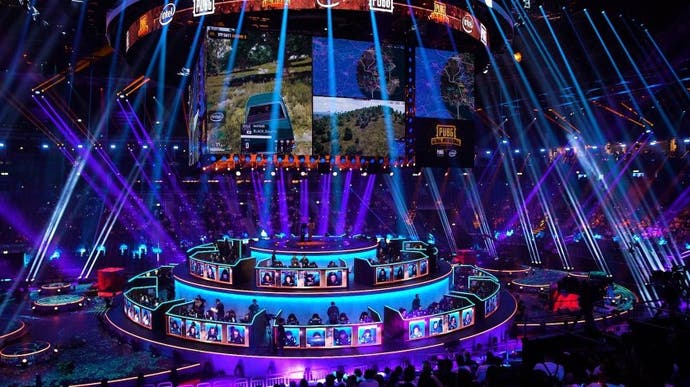Esports still need to become more accessible to casual spectators
Fun for all.
Not too long ago, I was screaming myself hoarse at the TV while two groups of men kicked a ball across a field. What's even wilder than me getting invested this much is how I dependably stop caring about any sport unless a large scale-event is on.
During the Winter Games I'll be sitting in my living-room at 2am to watch Japanese people ice-skate. When the Summer Olympics are on I assault helpless friends with fencing statistics. On the other hand, true to my profession, I never get out of my chair, and consider even a light jog a prelude to death.
This year, the World Cup overlapped with Summer Games Done Quick, and looking through my Twitter feed, I noticed how it attracted people that usually didn't follow esports. That made me take a closer look, and to my own surprise, I really enjoyed myself. There is something about someone pushing a game to its limits, opening them up and exposing all the wires below well-placed mechanics, that was really fun to watch. It made me wonder where the difference in my perception of sports compared to esports is, when both do something really similar - show you someone who is really, really good at a game. Why do people seem to be either fully invested... or not at all?
The first point in which sports, and I'm going to stick particularly with football here, have a natural advantage when it comes to capturing my attention, is their cultural saturation. Even if I had wanted to escape football during the World Cup by simply not turning on the telly, football was already everywhere , appearing even in the most unexpected places, like the Slenderman out for my attention and my wallet. You passively pick information about upcoming matches up in a way I always hoped I would by placing my maths textbook underneath my pillow prior to an exam.
Players become familiar faces whose performance you get attached to. You get to follow their careers as they become part of the cultural landscape. In esports, that's difficult when you think about how quickly a player who's not at peak performance can fall out of favour, or how quickly the zenith for optimal performance is reached. It doesn't help if a team decides to drop more than half of its roster at the end of a season, either.

Of course you don't need to know every face to enjoy a sport, but identification with players can be an important factor. We've seen it with the addition of Kim "Geguri" Se-yeon to the Overwatch League's Shanghai Dragons. To fans, it was satisfying to see her talent acknowledged, and including a woman in a professional esports team was an important step for inclusion and diversity. Acknowledging Geguri meant acknowledging the existence and skill of female Overwatch players.
Similarly, Dominique "SonicFox" McLean coming out after his DragonBall FighterZ win at EVO 2018 was a big deal because esports assimilates the same problems of male-dominated sports that make diversity so important.
In some respects, esports as a format are awkward for public consumption. A tournament isn't a party through and through, as the skill on display in some matches seems to require the hush of a chess tournament. The speed of every game I've watched from Dragon Ball FighterZ EVO tournaments to PUBG Invitationals, also means that I can usually only take in one thing, the gameplay or the commentary.
Games you haven't played usually aren't very accessible to casual spectators. "Are we gonna summon after that clean break on the air mount?" one commentator asks during a match. Sure mate, if that's what you're into.

Granted, there are traditional sports that can be just as difficult to grasp, but it's easier to watch something that doesn't assume a shared understanding. The sentence I've heard most often during EVO was probably, "we all know what that means".
By comparison, we already have an inbuilt understanding of most sports, even if we don't know the full ruleset. A weightlifter fighting gravity can provoke a sympathetic twinge, because you can see the struggle in their face, feel the triumph of every inch of additional height gained. Even a beat'em up, an approximation of a physical fight, triggers this feeling more effectively if you know the game you're watching. Two characters trading blows in a shower of sparks in Guilty Gear or someone making a great comeback from dangling over a ledge in Smash Bros can be exhilarating to watch, but sometimes, just sometimes, without knowing the effort that goes into perfecting movesets and timings, I feel like I could do that, too.
I can't, of course, but this equalising force of esports divides its potential audience in the same way streaming does. When I watch someone stream a game, I'm looking for that little something that makes a game interesting that I otherwise wouldn't play. A charismatic streamer provides additional entertainment that makes you stick with them even if you wouldn't play a game yourself. With esports, that entertainment can be an excited crowd or a good sports caster, but it's also often tired-looking teenagers and people talking a mile a minute.
Over the course of a week, I grabbed every person I could, both on social media and off, to ask them one simple question: "What made you enjoy esports?" and to get the full picture: "If you feel you can't get into esports, why is that?"

Whereas a streamer can take the time to make a game entertaining and understandable to newcomers, judging by the responses I got, esports matches attract fans of quickee games more often than not.
"I've been a long-time player of CS:GO and wanted to see where other people could take the game," one Twitter user tells me.
"The idea that someone could dedicate so much time to getting good at something you've dabbled in - that's sports, isn't it?" says another.
There is only a single person in my inbox who watches an esports tournament without having played the game themselves.
"I like the OWL," they say. "It has really high production values and with all the coverage and the general popularity of Overwatch, I just became curious."
There are several people who, like me, have started looking for games with a little less anxiety-inducing pace. In this context, League of Legends and, a little surprisingly, Starcraft come up a lot.
"Starcraft matches are quite fast-paced," one message reads, "But even then what you're seeing makes sense."
Those who don't watch esports bring up another important aspect: the issue of animosity and toxicity. Still part and parcel with large areas of the gaming community, esports players are not yet held to the same standard of professional behaviour that exist for other sporting events. Out of fairness it needs to be mentioned that during the Football World Cup, several national football associations were fined by the FIFA for fans chanting racist slurs, but players, representatives of their countries, are held to a higher standard, and if only because they are used to scrutiny under the public eye.
"I don't like the stories that come out of several big esports tournaments," one user says, a statement echoed by several other people. "It speaks of a very macho atmosphere, worse than what you get from traditional sports, and I fear that with the growth of esports, this is just another thing that reflects badly on gamers."
What makes esports so enjoyable and difficult at the same time, is how everyone is a fan, but no one seems to be a professional. There is no shared framework for how to support players or deal with questionable audience behaviour.
Esports by and large needs to adjust to their rapid audience growth. Time and a commitment to diversity, both in teams and audiences, can solve some of these issues, but with the projected growth of the sector, this has to happen quickly.

